Acetyl-L-Carnitine vs. L-Carnitine: Which Should You Choose?
Author:
Unlock your full potential by engaging with our experts and community! Have questions about your fitness journey or looking for expert advice on weightlifting techniques? Don’t hesitate — leave a comment below and David Sasha Schulz will provide a personalized answer and insights to help you reach your goals.
Torokhtiy is reader-supported. Some links are affiliate links, and we may earn a commission at no extra cost to you. See our disclosure page for details.
When it comes to fat-burning supplements, you’ve probably heard about L-carnitine. But, when going supplement shopping, you might have realized there are different versions of carnitine. And, now, you may be confused about the best option. Two popular options are acetyl-L-carnitine and L-carnitine. But, what are the differences between acetyl-L-carnitine vs. L-carnitine?
Here, we’ll review the difference between L-carnitine and acetyl-L-carnitine to help you decide the best based on your goals and needs.
The biggest difference between acetyl-L-carnitine vs. L-carnitine is its absorption. It seems that acetyl-L-carnitine might be more easily absorbed than L-carnitine. In addition, acetyl-L-carnitine can pass through the blood-brain barrier, helping improve both fat oxidation and brain function.
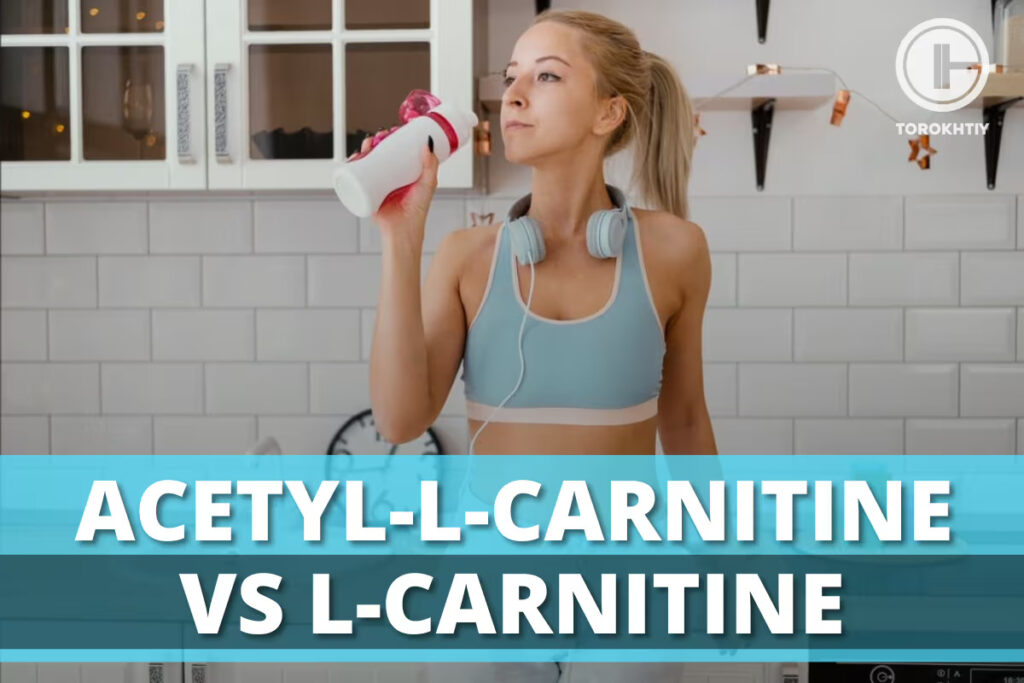
What Is Carnitine And What Are Its Forms On The Market?
Carnitine is a molecule found mainly in fatty tissues that helps oxidize fats and use them for energy. It is synthesized in the liver, kidney, and brain from the amino acids methionine and lysine.
Its main purpose is to help oxidize fat. Think of carnitine as the wagons that mobilize the fuel (fat) to the mitochondria (the body’s power plant) to help produce energy (ATP).
As mentioned, while the body produces carnitine naturally, it must also get an additional dosage from dietary sources. Most carnitine comes from animal sources, which is why plant-based diets tend to be very low in carnitine intake.
There are different forms of carnitine: acetyl-L-carnitine, L-carnitine L-tartrate, and propionyl-L-carnitine. Let’s take a closer look at their differences.
1. Acetyl-L-Carnitine
Acetyl-L-carnitine, or ALCAR, is one of the most common forms of L-carnitine. It is naturally produced in the body, but you can also get it from exogenous sources, such as supplements and foods.
Research shows that since it can go through the blood-brain barrier, it can have positive effects on brain function and mood regulation.
2. L-Carnitine L-Tartarate
It is a fast-absorbing type of carnitine, which is why it’s usually added to sports supplements. Evidence shows that it can have positive effects on recovery and reducing fatigue.
3. Propionyl-L-Carnitine
This option is recommended for people with heart disease since it can help increase nitric oxide. As a result, it can help widen blood vessels and reduce blood pressure. So, it’s often recommended for people with vascular disease or high blood pressure.

Summary: What Is The Difference Between Acetyl-L-Carnitine and L-Carnitine
You might still not understand completely the difference between acetyl-Lcarnitine and L-carnitine.
In reality, they both have the same mechanisms of action. Since they can help increase fat oxidation, it can result in fat loss. However, keep in mind that it’s not a miracle cure for excess weight. While the supplements might aid, you still need to exercise and be in a caloric deficit to lose weight.
The biggest difference between L- carnitine vs. acetyl-L-carnitine is its absorption. It seems that acetyl-L-carnitine has better absorption than L-carnitine and can pass through the blood-brain barrier.
However, more human studies are needed to determine the absorption rate difference between acetyl-L-carnitine and L-carnitine.
Another difference is its possible effect on brain function and mood. Since acetyl-L-carnitine can pass through the blood-brain barrier, it can help prevent possible age-related decline and improve memory and learning processes. It might also help improve symptoms of neurodegenerative diseases such as dementia.
Do You Need A Carnitine Supplement And For What Purpose?
Supplements are typically divided into groups, depending on the levels of evidence they have.
- Group A: They have good evidence to support their claims of benefit in specific scenarios.
- Group B: They are in research but have good evidence that may benefit certain sports.
- Group C: Insufficient evidence to back up their claims.
- Group D: Contains banned substances.
When it comes to L-carnitine or acetyl-L-carnitine, there is still more research needed. That is why it is found in group B in the classification of supplements.
Still, there is enough evidence to help determine the best time to supplement and the recommended doses.
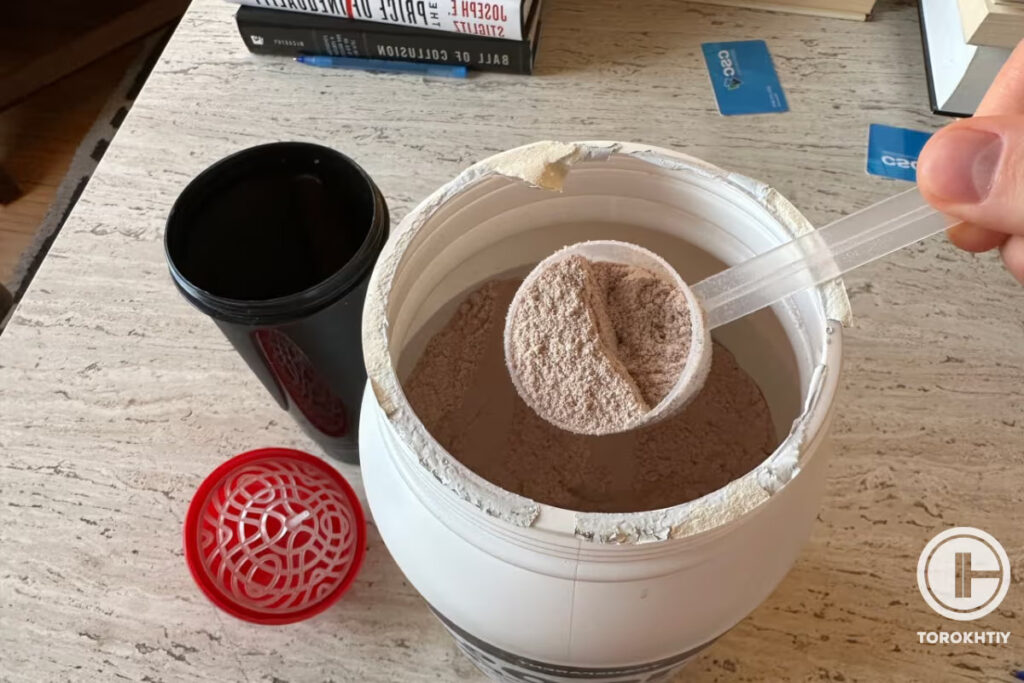
1. When To Supplement?
• Case 1: Athletes
Most athletes can benefit from L-carnitine supplementation. Here are the athletes that can benefit from L-carnitine supplementation:
- Endurance athletes train for more than 30 minutes per session.
- High-intensity workouts.
- If you need help recovering after heavy training loads or resistance training.
The recommended dosage is between 1.4 to 3 grams of L-carnitine (2 to 4 grams of L-carnitine L-tartrate and around 2,700 mg of ALCAR per day). It’s best to split the dosage in half throughout the day to avoid any gastric complications. Also, keep in mind that it works through saturation (like creatine monohydrate). So, it’s recommended you take it daily for at least 12 weeks.
With that said, still more research is needed on athletes to determine all the possible effects of L-carnitine supplements.
• Case 2: Vegetarian Or Vegan Diets
Since vegetarians and vegans have low consumption of animal products, it can result in low levels of L-carnitine. For this reason, if you are following a plant-based diet and are highly active, it can be a good idea to supplement with L-carnitine.
Still, it’s always better to consult with a health professional if you are considering taking L-carnitine to find out what is the recommended dosage.
2. Can You Take L-Carnitine and Acetyl-L-Carnitine Together?
One question you might still have is if you can take acetyl-L-carnitine and L-carnitine together. While you can take both supplements together, it’s pointless to do so. Acetyl-L-carnitine is a form of L-carnitine, so it makes no sense to supplement with both options.
Since acetyl-L-carnitine does the same functions as L-carnitine but with the added cognitive benefits, it might be a better option.
3. The Supplement We Recommend: Jarrow Formulas Acetyl-L-Carnitine
If you are looking for the best acetyl-L-carnitine supplement, we’ve got you covered. Our top choice when choosing to supplement with carnitine is Jarrow Formulas acetyl-L-carnitine.
What makes this a great option is that it is gluten-free, made with non-GMO ingredients, and even though it comes in capsule form, it’s vegan-friendly. It is ideal for those following a plant-based diet to help cover their carnitine needs.
One capsule provides 500 mg, and the company recommends taking one or two capsules a day. However, you can consult with a health professional what is the best dosage based on your goals and needs.
4. Carnitine-Tartrate + Creatine Combo Supplement
Now, if you are looking to add carnitine to help improve recovery, Legion Athletics offers the best carnitine and creatine combo. Recharge post-workout is a supplement that contains 5 grams of micronized creatine, 2.1 grams of L-carnitine L-tartrate, and 10.5 mg of corosolic acid.
Creatine is one of the supplements with the most scientific evidence for benefit. It may improve muscle strength and increase muscle growth, but what makes this one of the best ingredients to add post-workout is that it seems to help reduce muscle soreness and damage after strenuous exercise.
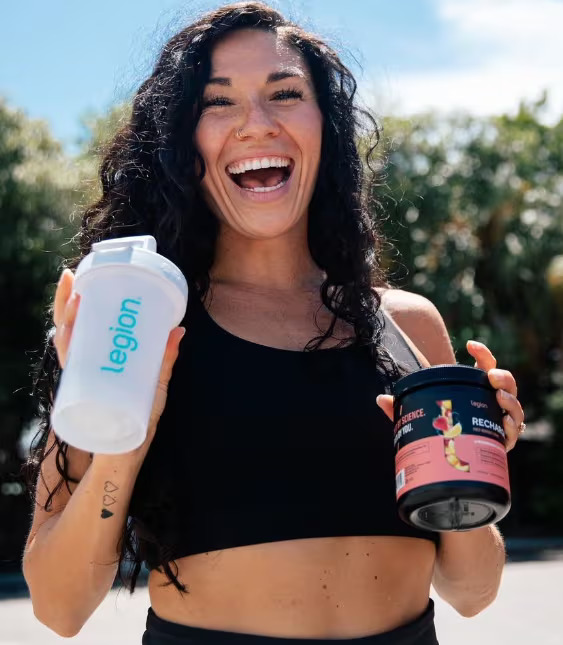
As previously mentioned, L-carnitine L-tartrate can help improve muscle recovery. So, in the post-workout supplement, you get two powerful ingredients to help improve muscle recovery and reduce muscle soreness.
Regarding corosolic acid, it seems to help improve glucose uptake and improve nutrient absorption, which is an essential component in muscle growth and repair.
Finally, this fully transparent formula is made with all-natural ingredients and tested for purity. In addition, the company offers a money-back guarantee.
FAQ
Which Is Better, Acetyl-L-Carnitine Or L-Carnitine?
Acetyl-L-carnitine seems to be a better option since it might have better absorption than L-carnitine. Also, since it can pass through the blood-brain barrier, it can have benefits for cognitive function. Still, L-carnitine can be a good option to help increase fat oxidation.
Does Acetyl-L-Carnitine Burn Fat?
Yes, research shows that acetyl-L-carnitine can help burn fat. However, it is not a magic pill that will make you lose fat. You still need to be in a caloric deficit to lose weight. This means reducing your caloric intake or increasing your activity levels (or both).
What Is The Best Form Of L-Carnitine?
L-carnitine L-tartrate might be the best form of L-carnitine since it has the fastest absorption and can help improve recovery in athletes. But, acetyl-L-carnitine can be a good option since it can help increase fat oxidation (fat burning) and improve cognitive function. Talk to a health professional to determine the best option based on your needs.
Conclusion
So, is acetyl-L-carnitine the same as L-carnitine? No, while acetyl-L-carnitine is a form of L-carnitine, they are not the same molecule.
Now, if you need to choose L-carnitine or acetyl-Lcarnitine for fat loss, which route should you go? Regarding fat loss, they both seem to be equally effective when combined with the right nutrition and exercise plan. Remember that you still need to be in a caloric deficit for the supplement to work.
But, if you want to improve cognitive function, acetyl-L-carnitine is a better option since it passes through the blood-brain barrier.
If you are looking for great acetyl-L-carnitine options, Jarrow Formulas acetyl-L-carnitine offers the best option. Each capsule contains 500 mg of acetyl-L-carnitine. It’s also vegan-friendly and gluten-free.
However, if you are looking to improve your recovery, you are better off with a combination of L-carnitine L-tartrate with creatine monohydrate. In this case, Recharge by Legion Athletics is the best supplement option.
Which type of L-carnitine have you tried? Let us know in the comments.
Also read:
- L Citrulline vs Citrulline Malate
- Foods High in Citrulline
- Glutamine for Muscle Soreness
- Glutamine or Glutamate
- Glutamine Foods
- L-Glutamine Weight Loss
- L Glutamine or L Carnitine
- L Carnitine Coffee
References:
- ‘AIS SPORTS SUPPLEMENT FRAMEWORK CARNITINE (L-CARNITINE)’
- Bloomer RJ, Tschume LC and Smith WA, ‘Glycine Propionyl-L-Carnitine Modulates Lipid Peroxidation and Nitric Oxide in Human Subjects’ (2009) 79 International Journal for Vitamin and Nutrition Research. Internationale Zeitschrift Fur Vitamin- Und Ernahrungsforschung. Journal International De Vitaminologie Et De Nutrition 131 accessed 18 October 2023
- Hathcock JN and Shao A, ‘Risk Assessment for Carnitine’ (2006) 46 Regulatory Toxicology and Pharmacology 23
- Ho J-Y and others, ‘L-Carnitine L-Tartrate Supplementation Favorably Affects Biochemical Markers of Recovery from Physical Exertion in Middle-Aged Men and Women’ (2010) 59 Metabolism 1190
- Koozehchian MS and others, ‘Effects of Nine Weeks L-Carnitine Supplementation on Exercise Performance, Anaerobic Power, and Exercise-Induced Oxidative Stress in Resistance-Trained Males’ (2018) 22 Journal of Exercise Nutrition & Biochemistry 7
- National Institutes of Health, ‘Office of Dietary Supplements – Carnitine’ (Nih.gov2017)
- Pooyandjoo M and others, ‘The Effect of (L-)Carnitine on Weight Loss in Adults: A Systematic Review and Meta-Analysis of Randomized Controlled Trials’ (2016) 17 Obesity Reviews 970
- Stefan M and others, ‘L-Carnitine Tartrate Supplementation for 5 Weeks Improves Exercise Recovery in Men and Women: A Randomized, Double-Blind, Placebo-Controlled Trial’ (2021) 13 Nutrients 3432
- Traina G, ‘The Neurobiology of Acetyl-L-Carnitine’ (2016) 21 Frontiers in Bioscience (Landmark Edition) 1314 accessed 12 July 2021
- Yang Y and others, ‘A Multicenter, Randomized, Double-Blind, Placebo-Controlled Clinical Trial for Efficacy of Acetyl-L-Carnitine in Patients with Dementia Associated with Cerebrovascular Disease’ (2018) 17 Dementia and Neurocognitive Disorders 1 accessed 15 May 2020
Why Trust Us?
With over 20 years in Olympic weightlifting, strength training, nutrition coaching, and general fitness our team does its best to provide the audience with ultimate support and meet the needs and requirements of advanced athletes and professional lifters, as well as people who strive to open new opportunities and develop their physical capabilities with us.
By trusting the recommendations of our certified experts in coaching, nutrition, and sports training programming, as well as scientific consultants, and physiotherapists, we provide you with thorough, well-considered, and scientifically proven content. All the information given in the articles concerning workout programming, separate exercises, and athletic performance, in general, is based on verified data.
The product testing process is described in more detail here.
Author: David Sasha Schulz
Doctor of Chiropractic, BSc Human Biology, CSCS
Strength coach (CSCS) – 10 years
Sasha is a Chiropractor and Kinesiologist practicing in Kelowna, BC, Canada. He has been practicing Chiropractic since 2019, integrating manual therapy, strength training and programming principles, and nutritional strategies to get his patients optimal results. He currently scratches the competitive itch in fitness, and the occasional endurance race, and plays golf and snowboards for fun. He has an interest in all strength and fitness-related sports.



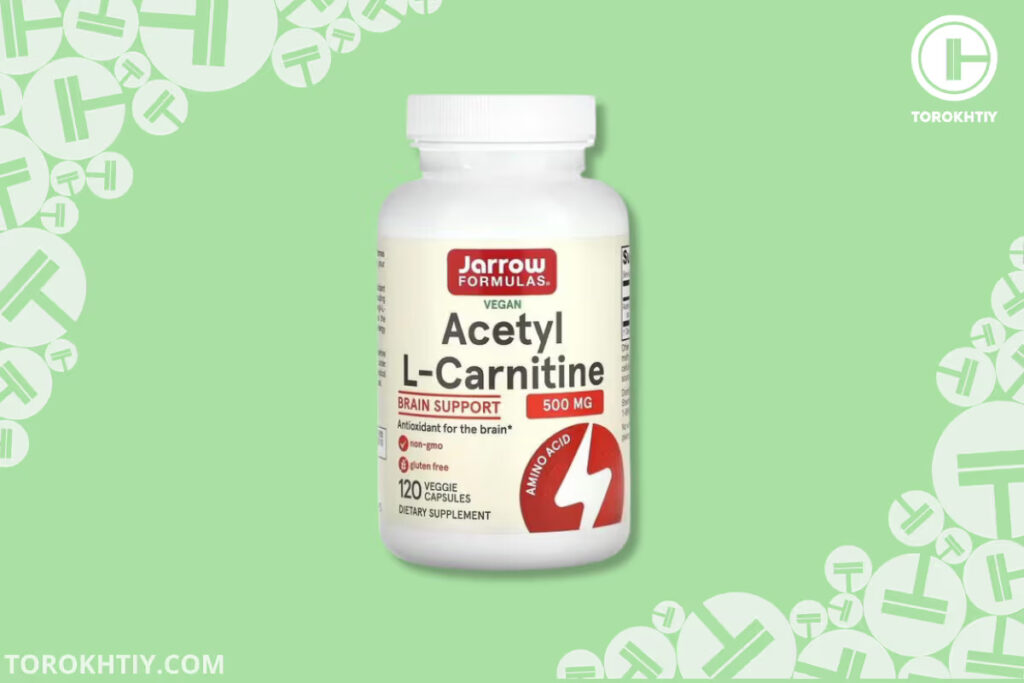
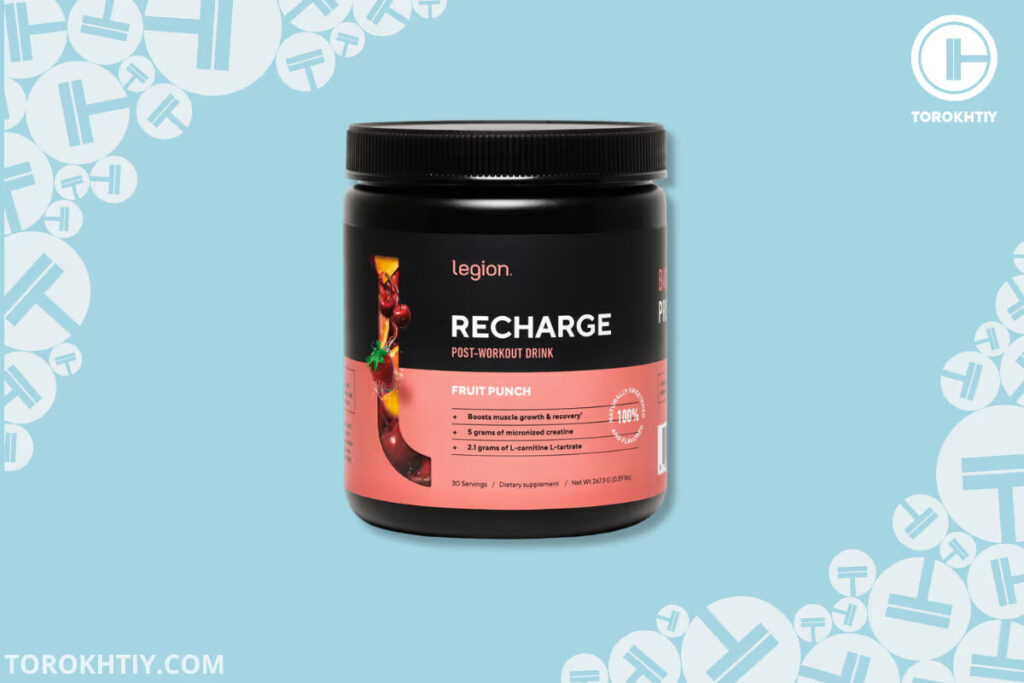
Still have questions after reading our article? Unlock your full potential by engaging with our experts and community! Don’t hesitate — leave a comment below and David Sasha Schulz will provide a personalized answer and insights to help you reach your goals.